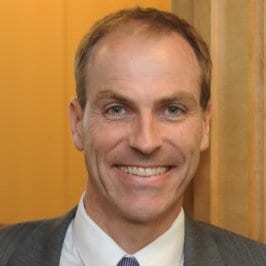Contributed by TDC member Julie Jurgens
May 2017

ASHG: What are some of the genetic policy items that ASHG is currently discussing?
Dr. Scholes: The Preserving Employee Wellness Programs Act (HR1313) is currently a major focus. This legislation, recently introduced in the U.S. Congress, would eviscerate key genetic privacy protections in the Genetic Information Nondiscrimination Act (GINA). GINA prevents employers from accessing their employees’ genetic information, but this protection would be fundamentally undermined if HR1313 were enacted. ASHG supports the public’s right to keep their genetic information private, and has for many years championed GINA. Therefore, ASHG is a leading organization opposing HR1313 legislation.
We are also developing a new Society statement on germline gene editing. A workgroup charged by ASHG’s Board of Directors has nearly completed its work, and we expect that the policy statement will be issued soon.
ASHG: How does the Society decide which policy topics to address?
Dr. Scholes: We have a policy platform that lays out a spectrum of priority issues of interest to the genetics community. The overarching issue areas are genetics research, the use of genetics in healthcare practice, non-clinical societal uses of genetics, and the teaching of genetics and genetics literacy. Within this general framework, there are several additional factors we consider when determining whether to engage on a particular issue at a particular time, such as whether there is a current need and whether ASHG can have an impactful role. The Board plays a critical role in all policy matters, deciding when ASHG should speak out on an issue and what the Society’s position should be.
ASHG: What national or international agencies do you interact with when forming policy statements? How do ASHG’s statements shape the official policies issued by these agencies?
Dr. Scholes: Who we engage with on policy development and advocacy is very issue-dependent. For instance, we have worked with a number of international genetics groups on the development of the germline gene editing statement. When advocating against the passage of HR1313 by Congress, however, most of our interactions have been with patient and disability groups sharing our concerns about the legislation.
Regarding government, we engage most regularly with the U.S. Congress and the National Institutes of Health. To a lesser extent, we also engage with the Food and Drug Administration (FDA) and the Equal Employment Opportunity Commission (EEOC; one of the agencies that enforces GINA) in the U.S. We further interact with governments and lawmakers in other countries when there is an opportunity to have an influence. For example, in the past year we have worked very closely with Senator Jim Cowan in the Parliament of Canada to help build support for S-201, the Genetic Non-Discrimination Act.
We seek to shape policy by providing the Society’s perspectives on pending legislation and draft regulations. For example, if a government agency such as the EEOC or FDA issues a draft regulation related to one of our priority issues, we will submit comments to the appropriate agency. If the Board of Directors determines that ASHG should support or oppose legislation, we will send a letter to Congress or meet with the appropriate congressional staff. While there is no guarantee that our perspective will be reflected in a final bill, regulation or other government policy decision, we have nevertheless had some notable successes in the past year with the passage of the Genetic Non-Discrimination Act by the Parliament of Canada and the Genetic Research Privacy Protection Act by the U.S. Congress.
ASHG: How do members shape the Society’s policy statements? Is there a way for members to become more involved?
Dr. Scholes: One way to become more involved is to provide your thoughts on pending ASHG policy issues. In the past year, members have had the opportunity to comment on drafts of the policy platform and the germline genome editing statement. We review all comments carefully, and they influence the final product. In addition, the development of a new position statement is often led by the Social Issues Committee, so a way to become more involved is to apply to join the Committee – there are slots that open up each year.
ASHG: How would you advise interested trainees to become more involved in genetic policy?
Dr. Scholes: My hope is that trainees will become more engaged in advocating for issues of interest to the genetics community. This is why we have just created the Take Action page on ASHG’s website. This will be further developed in the coming months to facilitate members taking action on key issues. Trainees who really have the policy ‘bug’ and want to transition to a career in policy should consider applying for the very successful Genetics and Public Policy Fellowship, a program cosponsored by ASHG and the National Human Genome Research Institute.
